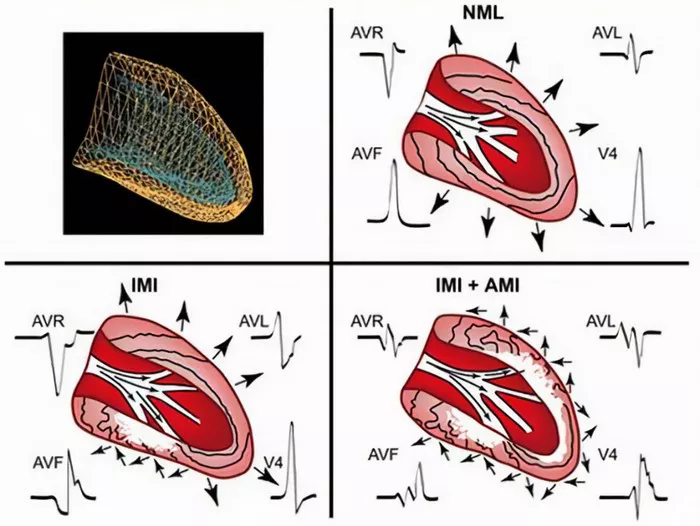As a cardiologist, it’s important to provide insights into various treatment modalities, considering factors such as the type of arrhythmia, underlying heart health, and individual patient preferences. In this article, we will explore the range of treatment options available for arrhythmia, including medications, procedures, and lifestyle modifications, to help individuals navigate their treatment journey effectively.
Understanding Arrhythmia
Provide a brief overview of arrhythmia, emphasizing the importance of restoring normal heart rhythm to prevent complications.
Differentiate between various types of arrhythmias, such as atrial fibrillation, ventricular tachycardia, and supraventricular tachycardia, highlighting their unique characteristics and treatment approaches.
Medications
Discuss the role of antiarrhythmic medications in controlling abnormal heart rhythms, including their mechanism of action and potential side effects.
Outline specific medications commonly prescribed for different types of arrhythmias, such as:
- beta-blockers
- calcium channel blockers
- sodium channel blockers
What Is The Best Treatment for Arrhythmia?
The best treatment approach may involve a combination of lifestyle modifications, medication, medical procedures, and in some cases, surgical interventions. Here are some common treatment options for arrhythmias:
Lifestyle Modifications:
Adopting a heart-healthy diet low in:
- saturated fats
- cholesterol
- sodium
- high in fruits
- vegetables
- whole grains
- lean proteins
Engaging in regular physical activity and maintaining a healthy weight to improve overall cardiovascular health.
Avoiding or limiting alcohol, caffeine, tobacco, and recreational drugs, which can exacerbate arrhythmias.
Managing stress through relaxation techniques, mindfulness, meditation, or counseling.
Medications:
Antiarrhythmic medications: These drugs help regulate heart rhythm by suppressing abnormal electrical signals in the heart. They may be prescribed to control symptoms and prevent recurrent arrhythmias. Examples include:
- beta-blockers
- calcium channel blockers
- sodium channel blockers
- potassium channel blockers
Rate-controlling medications: In cases where restoring normal sinus rhythm is not feasible or necessary, medications may be prescribed to slow down the heart rate and improve symptoms. These medications are often used in conditions such as atrial fibrillation with rapid ventricular response.
Anticoagulants: For individuals with atrial fibrillation or other arrhythmias at risk of blood clot formation, anticoagulant medications (blood thinners) may be prescribed to reduce the risk of stroke by preventing blood clots from forming or embolizing.
Cardioversion:
Electrical cardioversion: In this procedure, a controlled electric shock is delivered to the heart through paddles or patches placed on the chest to restore normal sinus rhythm. It is commonly used for acute episodes of atrial fibrillation or atrial flutter.
Pharmacological cardioversion: Certain medications, such as antiarrhythmic drugs, can be used to chemically convert an arrhythmia to normal sinus rhythm. This approach may be considered for stable patients with atrial fibrillation or atrial flutter.
Patient-Centered Approach
Stress the significance of individualized treatment plans tailored to each patient’s specific arrhythmia subtype, medical history, symptom severity, and lifestyle factors.
Encourage open communication between patients and healthcare providers to discuss treatment goals, expectations, and concerns.
Prognosis And Follow-Up
Provide insights into the long-term outlook for individuals with arrhythmia, highlighting the importance of regular follow-up appointments, monitoring, and adherence to treatment recommendations.
Discuss potential complications and strategies for managing them, as well as indications for reevaluation or adjustment of treatment plans over time.
Conclusion
Summarize key points regarding treatment options for arrhythmia, emphasizing the multidisciplinary approach involving medication, procedures, lifestyle modifications, and patient education.
Empower readers to work collaboratively with their healthcare team to identify the most appropriate treatment strategy based on their unique needs and preferences.
By addressing these key points in our article, we aim to provide readers with a comprehensive understanding of treatment options for arrhythmia, ultimately empowering them to make informed decisions and improve their quality of life.
FAQs
Does Irregular Heartbeat Need Treatment?
Irregular heartbeats, or arrhythmias, may or may not require treatment depending on various factors such as the type of arrhythmia, frequency, severity, associated symptoms, and underlying heart health. While some arrhythmias are benign and may not require intervention, others can lead to serious complications if left untreated. It’s essential for individuals experiencing irregular heartbeats to consult a healthcare professional for proper evaluation and guidance on whether treatment is necessary.
Can Arrhythmia be Cured?
The possibility of curing arrhythmia depends on several factors, including the type of arrhythmia, underlying heart conditions, and individual patient characteristics. While some arrhythmias can be effectively managed or controlled with treatment, achieving a complete cure may not always be feasible. For instance, certain arrhythmias may require ongoing medication, procedures, or lifestyle modifications to control symptoms and prevent complications. It’s important for individuals with arrhythmia to work closely with their healthcare team to develop a personalized treatment plan tailored to their specific needs and goals.
What Should People with Irregular Heartbeats Not Eat?
Individuals with irregular heartbeats should be mindful of their diet and avoid certain foods or beverages that may trigger or exacerbate arrhythmias. Common dietary triggers for irregular heartbeats include:
Caffeine: Found in coffee, tea, energy drinks, and some sodas, caffeine can stimulate the heart and potentially worsen arrhythmias.
Alcohol: Excessive alcohol consumption can disrupt normal heart rhythm and trigger arrhythmias, particularly in susceptible individuals.
High-sodium foods: A diet high in sodium can lead to fluid retention and high blood pressure, both of which may contribute to arrhythmias.
Fatty or fried foods: Foods high in saturated and trans fats can increase the risk of heart disease and arrhythmias by promoting inflammation and plaque buildup in the arteries.
Spicy foods: Some individuals may find that spicy foods can trigger palpitations or worsen existing arrhythmias.
It’s important for individuals with irregular heartbeats to adopt a heart-healthy diet rich in fruits, vegetables, whole grains, lean proteins, and healthy fats. Additionally, maintaining a balanced diet, staying hydrated, and avoiding excessive intake of stimulants can help support heart health and minimize the risk of arrhythmias.


